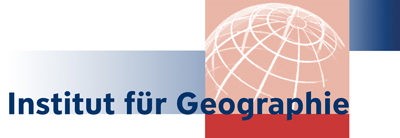Adila Eugenia Brindel
Adila Brindel
Seit Mai 2024: Gefördert im Rahmen des “Graduate Center für Promovierende” des Bayerischen Forschungsinstituts für Digitale Transformation
Oct 2023: FAU-Awards Hans-Wilhelm und Helga Schüßler-Preis 2023
Seit oct 2022: PhD Candidate Digital Geographies. Friedrich-Alexander-Universität Erlangen-Nürnberg and scholarship holder of the Rosa-Luxemburg-Stiftung.
Dec 2021: Wissenschaftliche Hilfskraft mit Master-Abschluss. Arbeitsgruppe Digitale Geographien. Institut für Geographie. Friedrich-Alexander-Universität Erlangen-Nürnberg.
Aug – Sep 2018: Exchange Student funding program AfriCity (BMBF und DAAD) at the Rhodes University – Grahamstown / Südafrika.
Seit oct 2020: Coordinator of the International Reading Circle in Feminist Studies. Friedrich-Alexander-Universität Erlangen-Nürnberg.
2017- 2021: M. A. Kulturgeographie. Friedrich-Alexander-Universität Erlangen-Nürnberg.
2013 – 2014: Exchange student – funding program UNIBRAL Brazil-Germany (DAAD) at the Katholische Universität Eichstätt-Ingolstadt.
2011- 2016: B. A. Human Geography (Federal University of Goiás – Goiania / Brasilien)
2024
III Colloquium – Contemporary Approaches to Addressing Worker’s Health Challenges. „Workers‘ Health as a Human Right – A Digital Feminist Geographies Perspective“. Fundação Oswaldo Cruz (Fiocruz) – Rio de Janeiro
I Feminist Lecture Series. „Women, Art, and Connection: The Role of Digital Networks in Political Organization for Gender Justice“. Valenta Cultural Agency – Goiania.
2023
Vernetzungstreffen Feministische Geographien. „Why We Need a Decolonial Feminism: Introduction to Perspectives from the Global“. Geographisches Institut – Universität Heidelberg.
III Colloquium – Contemporary Approaches to Addressing Worker’s Health Challenges. „Towards a science that uncovers reality – Introduction to a Feminist Digital Geographies“. Institut of Geography – State University of Goiás. Cidade de Goiás.
Research focus on Digital Geographies and Feminist Geographies centered on the Global South and Decolonial Perspective.
The doctoral project explores the intersection of critical theory and digital transformation, informed by decolonial feminist theories in Latin America and a critical development approach. It argues that leveraging DICTs can empower women, mainly when framed within a decolonial perspective aiming to promote gender equality through the ICT4D approach.
Employing Feminist Participatory Action Research principles, the study assesses how DICTs serve as tools for grassroots feminist activism, focusing on the Movimento das Mulheres sem Terra in Brazil. It employs a multiscale methodology to investigate the movement’s discourse and practices, including qualitative interviews and participatory action research methods.
The project plans to conduct empirical research on DICT development in Global South countries and its impact on feminist movements, focusing on the perspective of Movimento das Mulheres sem Terra. The goal is to transform social conditions towards equality and justice for women and girls.
Methodologically, the project involves participant observation, interviews, and narrative inquiries with Mulheres sem Terra from land occupations in Goiás. Through a decolonial lens, it examines the potential of DICTs for women’s empowerment and emancipation.
By employing feminist participatory research methods, the study aims to address these questions collectively and implement actionable plans. It hopes to offer new insights into how DICTs can advance the feminist agenda and bridge the global gender digital divide.
Summer Term 24: Cultural Geography and Decolonial Turn. Arbeitsgruppe Stadt Geographien. Institut für Geographie. Universität Heidelberg.
Winter term 23/2: Cultural Geography and Decolonial Turn. Arbeitsgruppe Stadt Geographien. Institut für Geographie. Universität Heidelberg.

